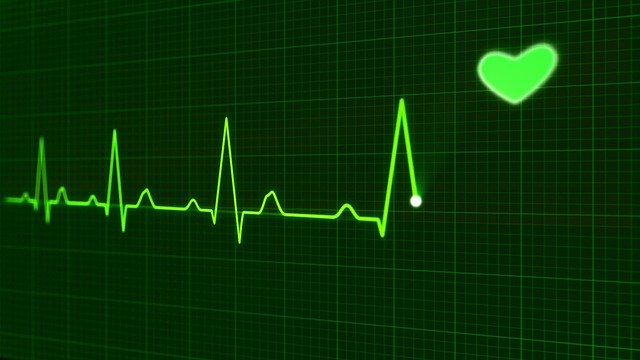Our heart is indeed one of the major internal body organs, responsible for the entire blood circulation within the body. In fact, without the heart, all human beings would be technically dead. Even the brain, which is considered to be the powerhouse of our body, wouldn’t function at all in the absence of heart.

Unfortunately, most of the human population today face one or the other heart-related ailments. One of the common problems that people face is a heart blockage. While heart conditions have their roots in a person’s gene, more often than not, these issues can arise due to certain other aspects too. Lack of proper exercise and excessive smoking can lead to fatal heart-related complications.
Introduction
& types of Heart blockage
Heart block, bundle branch, or AV bundle block affects the heart’s electrical system. Unlike coronary artery disease, heart blockage doesn’t affect the heart’s blood vessels. In cases of heart blockage, your heart beats in irregular intervals and often in a slower manner as compared to a normal heart. In several cases, a blocked heart can potentially stop for up to 20 seconds at a stretch.
This mainly happens because of some sort of a delay in neurological impulses or disruption in the process. You probably know that electrical impulses travel through a specific pathway, which in turn enables the heart to beat efficiently. But, when an obstruction is on the cards, irregularity in heartbeats can be noticed. Often, such an obstruction is caused due to an injury or any sort of damage in the heart muscle or its internal valves. You must pay attention to the early heart blockage symptoms.
There are
three types of heart blockage conditions. They are as follows:
- First-degree heart block: Such a condition involves minor disruptions in heartbeats. Skipped beats are one of the characteristics of such heart blockage. In terms of severity, it happens to be the least serious of them all. It doesn’t require any extensive treatment. However, it’s better to take precautions ahead of time to avoid further complications.
- Second-degree heart block: Such a kind of heart blockage occurs when electrical signals fail to reach the heart, which in turn causes dropped or skipped beats. Patients affected by such a condition might feel dizzy. In such scenarios, the ventricle might not contract because the atrial impulse can’t reach the ventricles. In a more serious note, patients might even require to install a pacemaker into their system.
- Third-degree or complete heart block: This is the most serious condition that shouldn’t be overlooked. This happens when electrical signals are completely unable to travel between the heart’s upper and lower chambers. In such conditions, if the patient refuses to use a pacemaker, the person would be exposed to a life risk. Heart attacks are more common when the third-degree heart blockage happens.
Heart
Blockage Symptoms, Risk Factors & Complications
Like all diseases, heart blockage symptoms are prevalent. It entirely depends on how well you recognize the early signs that indicate whether you are at the risk of heart blockage. Here are some of the symptoms that you should keep an eye on:
● Irregular heartbeats and palpitations
● Shortness of breath
● Fainting
● Lightheadedness
● Pain in the chest
● Challenges/feeling of exhaustion during exercises and intense physical activities
Several risk factors are associated with the onset of heart blockage conditions. Scarring of the heart tissue is one of the common reasons for heart blockage and it’s the reason why older people are more susceptible to it. While few people are born with a blocked heart, others tend to develop such a condition as they age, mainly because of smoking.
The following are the risk factors:
- Cardiomyopathy
- Coronary thrombosis
- Inflammation of the heart valves and muscle
- Presence of scar tissue inside the heart as a result of a heart attack or surgery
People having a bundle branch on their left side possess a higher risk of complications as compared to people with the right side blockage. Here are the potential complications:
- Arrhythmia
- Low heart rate
- Insufficient contraction
- Cardiac arrest
- Circulatory failure
Tips
for Recovery from Heart Attack
As you understand, leading an unhealthy lifestyle is the root cause of most of the heart disorders. Therefore, your priority should be adopting a healthy lifestyle. You might consider doing the following to prevent the occurrence of heart blockage that may lead to other heart complications in the future:
Quit smoking: Tobacco prevents oxygenated blood from reaching your heart. It also causes blood clots, which in turn leads to heart attacks. Nicotine raises your blood pressure and must be avoided.
Blood pressure control: High blood pressure stresses your heart & blood vessels. Therefore, you must manage your blood pressure. A regular exercise schedule, along with a balanced diet plan with lower sodium content, can help you minimize the risk of heart disorders.
Control your cholesterol: LDL (Low-density lipoproteins) are bad for your heart. Eating a heart-healthy diet and indulging in an exercise program is the best way to avoid such cholesterol from building up inside your body.
When
to seek medical attention?
You should consider consulting a doctor as soon as you experience any of the following:
- Chest pain
- Tightness in your neck, arms, stomach, or jaw
- Shortness of breath
- Dizziness, fainting, or weakness
- Sweaty skin
- Fast heartbeat
- Nausea
- Swelling of your legs
- Sudden fatigue
Remember, the sooner you take precautions, the better results you can expect. Stay alert, and stay safe!

